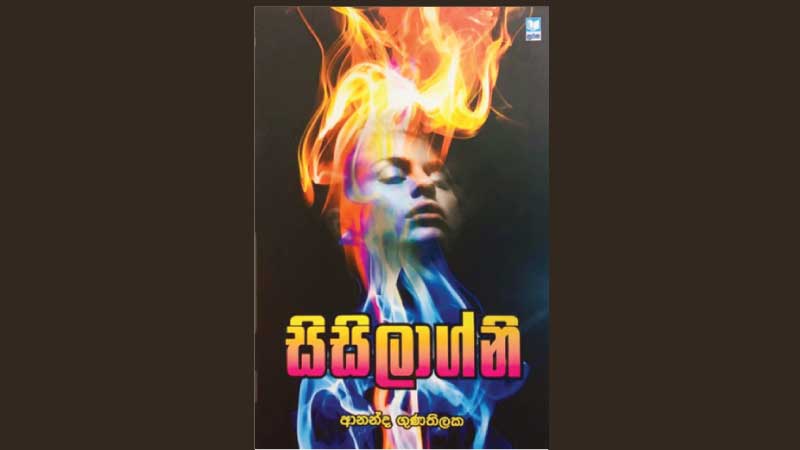Title: Sisilagni
Author: Ananda Goonetilleke
Sisilagni is a book which we have to read first as a novel by an unknown author. Next as a novel written by the poet and political activist Ananda Goonetilleke. Thirdly as a chronicle of recent political and social situation of the mid twentieth century Sri Lanka.
 It is a romantic novel, with two love stories - an unrequited teenage love affair and a serious relationship beginning in the university, amidst intermittent brief episodes of infatuations that take us back to the 60’s, to the era of Karunasena Jayalath.
It is a romantic novel, with two love stories - an unrequited teenage love affair and a serious relationship beginning in the university, amidst intermittent brief episodes of infatuations that take us back to the 60’s, to the era of Karunasena Jayalath.
Ananda Goonetilleke, in ‘Sisilagni’ leads us down memory lane, to our own school days, our friends, our teachers and also the happenings in our country and the world, about which we heard only from the radio and newspapers at the time. For most of us the words on these pages bring back memories of the political turmoil, the exploitation of the helpless people and the frustrated youth by a few selfish, power hungry men. There could be other novels covering this period, but Goonetilleke covers in detail the development which led to the southern uprising by the JVP in 1971. As I read ‘Sisilagni’ I remembered ‘When Memory Dies’ written by Ambalavanar Sivanandan, who takes us through the period which led to the ethnic conflict and the LTTE war.
Sisilagni is a book to be enjoyed by young adults and those who are still young at heart, and by those who were involved in social and political struggles in the country, and those who have been disappointed, disillusioned and renounced communist, socialist or leftist ideas and ideologies. Reading the story was depressing in a way as I realized that the knowledge of most of the young people not only among the toiling masses, but even among the university students, of world affairs and developments of our own country, were limited to what they could gather from the Sinhala mass media and a few translations. Many of them were the innocent helpless victims of power hungry politicians who prevented the youth from studying an international language.
Only young men like Avantha, the protagonist, could provide a little guidance, but even their efforts were hampered.
Sisilagni, like all our Sinhala Sahitya, need to be read, appreciated and enjoyed as a part of our own Sahitya, and not through the jaundiced eyes and minds corrupted by concepts of western literature, their critical methods, categorizations and prejudices.
The book also would be useful as extra reading material for students of modern history, political science and youth unrest.
We look forward to a sequel, if Goonetilleke does not want to leave us in suspense about the lives of Avantha and Sithuli.
- Reviewed by Daya Dissanayake


